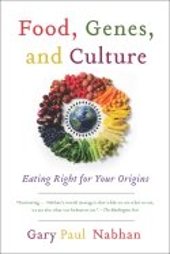I was a strict vegan for a long time, (even went fruitarian for 10 month), but am not any longer. I find meat impossible to eat (I do not judge meat eater), sorry to say this, but I find it disgusting. But I do not eat dairy, eggs, extremely rarely fish, and on rare occasions mussels. So what do I eat? Insects, worms, mostly store bought (I live in a city). Weird isn't it, that I find meat disgusting, but can enjoy eating insects (in moderate quantities), while many meat eaters would find that not in their taste.
Veganism is an artificial IDEA, and is totally removed from our physical reality. For instance: things that vegans love to consume such as peanut butter, chocolate, wheat, noodles, ground cinnamon, thyme etc, have quite high amounts of insect fragments, and the food industry allows only a certain level for each type. When harvesting, lots of animals/insects are caught and killed...
The more I read about it, the more I realise that insects have been and are still an important part in our diets (sure in hotter climates, there are more bugs): termites, caterpillars, grasshoppers, worms, ants...
Between 1978-81, in Thailand, there was an outbreak of locusts in the maize fields, the government did not manage to control it, so after a while, the government did a campaign to promote the farmers eating the locusts... It worked so well, that today, some farmers even grow the maize in order to raise the insects rather than harvesting the maize

In Japan, at each rice harvest, there is the grasshoppers harvest. In Korea, when the use of insecticide for rice growing spread, people stopped eating grasshoppers, but when they went organic, the coops made a nice benefit from the large number of grasshoppers sold in connection with the rice harvest.
We seem to forget the small critters, attention seem to get stuck on the big animals... For instance in Africa, there is a competition between the very nutritious mopane worms and elephants, they use the same trees. Elephants are very well know to destroy trees, just by walking around. There is a very strong protection programme in many places in Africa for elephant, which is good, but if the population gets too big, it just leaves a trail of distraction behind.
In some places, the Aztecs managed to develop a complex society without domesticated animals, instead they had insects and insects eggs, semi-cultivated in marshes and ponds.
The native indian americans would make a "fruitcake", made of pulverised grasshoppers + berries, easy to store and great for winter food. (Btw, when they tried their first prawn, they said it tasted like "sea-cricket". And a westerner might, when trying a cricket, call it a "sky-prawn"...)
And then we have environmental aspect, I don't have the numbers around, but compared with beef, the use of water was so much more efficient. And no butchering and all that ugly stuff. You can eat them whole.
Vegans like to point out, we don't have claws and fangs, we are not hunters. I agree in a way (though I don't see tools as evil as many fruitarian do). We are gatherers, and yes, I remembers those african boys going out in the early morning to go pick the grasshoppers (when it's cold they don't move). You don't go hunting shells, grubs, worms, you pick/gather them...
Go to Asia, Africa, Mexico and there is quite a lot of insect eating going on. This is definitively the future, I've heard of more and more restaurants in the US and Europe who are into this... But, there is a shortage of grubs for sale, there is a great market out there !!

 4
4




 1
1




 2
2




















 1
1
















 1
1




 1
1





 1
1













 3
3








 ). Honestly, I think that it is good, that way at least the vegans get a bit of B12 without knowing...
). Honestly, I think that it is good, that way at least the vegans get a bit of B12 without knowing...





 1
1








 1
1




 1
1




 1
1








